- Home
- About Us
- Products
-
Heat-Pump Dehumidifier DeAir
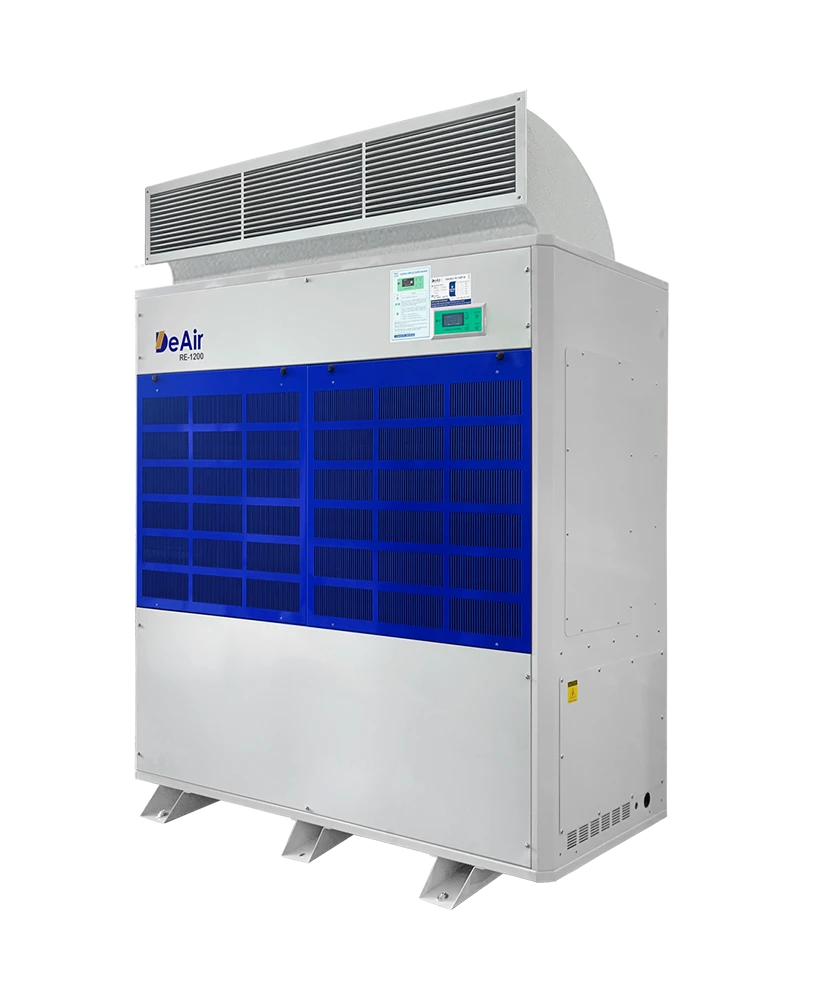 DeAir.RE
DeAir.RE -
Heat-Pump Dryer DeAir.RE-H
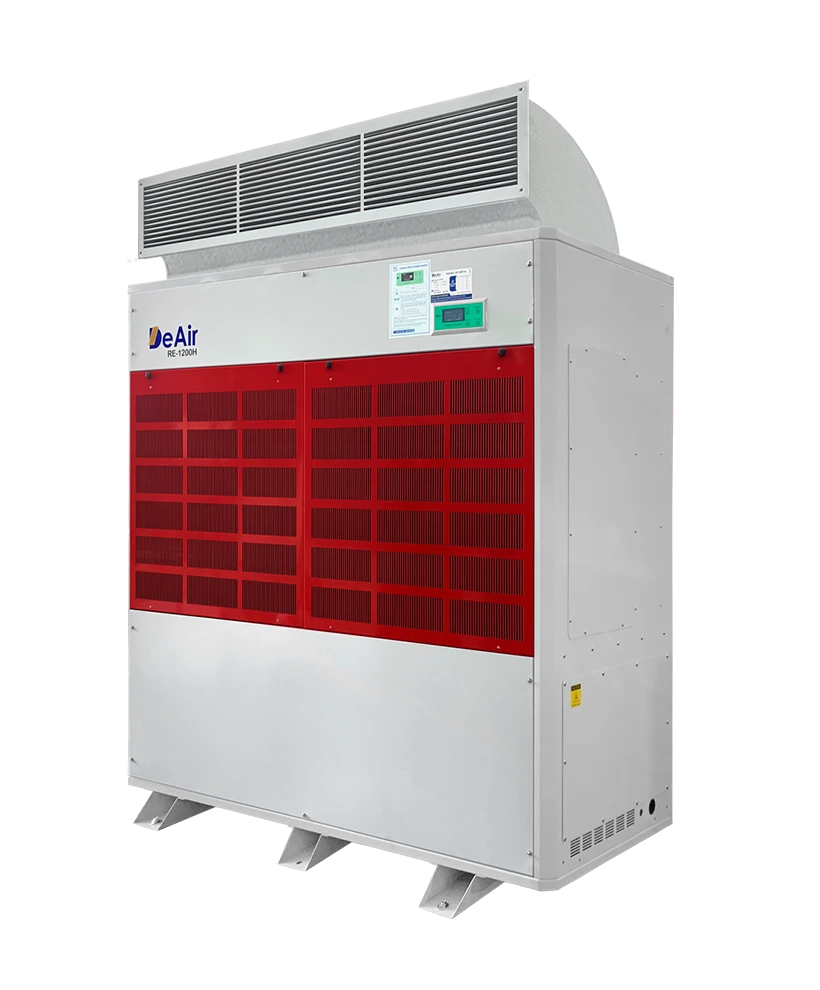 DeAir.RE-H
DeAir.RE-H -
Heat-Pump Stainless Steel Dehumidifier
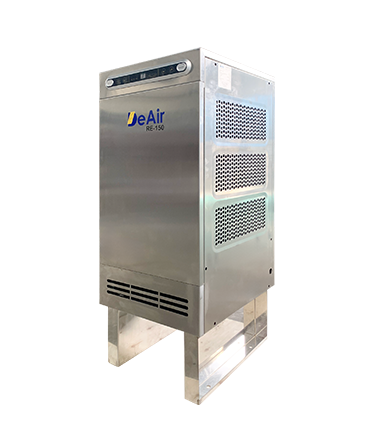 DeAir.RE-INOX
DeAir.RE-INOX -
Heat-Pump Isothermal Dehumidifier DeAir.CRE
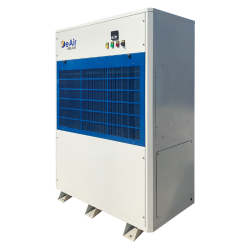 DeAir.CRE
DeAir.CRE -
Dezenno Dehumidifier
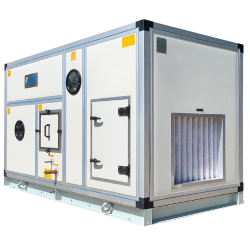 Dezenno
Dezenno -
Heat-Pump Ceiling Mounted Dehumidifier DeAir
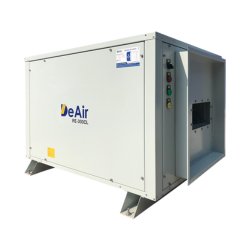 DeAir.RE-CL
DeAir.RE-CL -
Dehumidifier Olmas
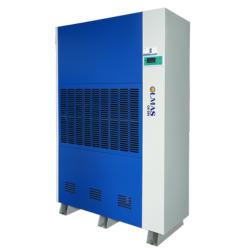 Olmas-OS
Olmas-OS -
Industrial Humidifier DeAir
 DeAir.HM
DeAir.HM -
Heat-Pump Dryer Daxwell
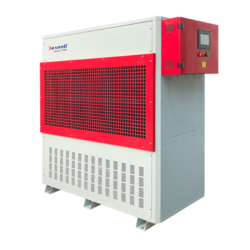 Daxwell
Daxwell -
Electric Duct Heater DeAir
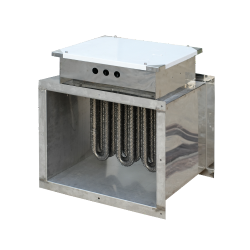 DeAir.Heat
DeAir.Heat -
Air Handling Unit Dezenno.MAX
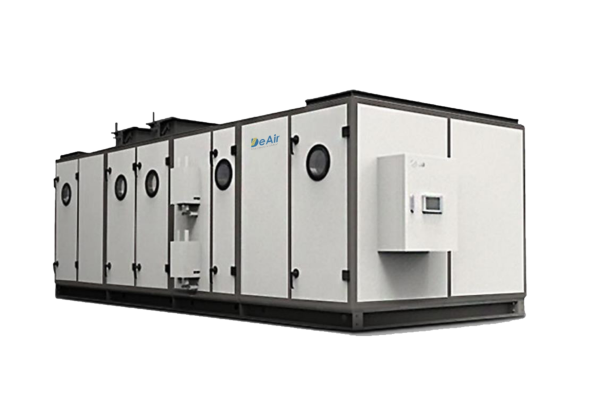 AHU
AHU
-
- Services
- Projects
- Warranty – Maintenance
- News
- Contact
How to Choose an Effective Industrial Dehumidifier: A Comprehensive Guide from DeAir Experts
31/05/2025
How to Choose an Effective Industrial Dehumidifier: A Comprehensive Guide from DeAir Experts
High humidity is a silent enemy for manufacturing businesses in Vietnam. From vast factories and cold storage facilities for agricultural products to laboratories, pharmaceutical plants, and intricate electronics workshops – humidity always lurks, causing numerous serious problems: from mold and corrosion of machinery and products to the risk of electrical short circuits and adverse health effects on workers.

Controlling humidity isn't just a task; it's a vital strategy for protecting assets, enhancing product quality, and optimizing operational costs. However, selecting the right industrial dehumidifier for optimal effectiveness isn't simple in today's diverse market.
This article will serve as your guide to understanding the most crucial criteria for choosing a suitable industrial dehumidifier. Specifically, we'll delve into the Heat Pump technology and evaluate the outstanding economic efficiency of DeAir's Heat Pump dehumidifiers, helping your business not only solve humidity issues but also maximize profitability.
Why is Choosing an "Effective" Industrial Dehumidifier Essential?
Underestimating or selecting the wrong industrial dehumidifier can lead to severe consequences:
- Damage to assets and equipment: High humidity causes metal corrosion, rust on machinery, and electronic circuit boards, reducing the lifespan and operational efficiency of production lines.
- Reduced product quality: Mold growth on agricultural products, food, and pharmaceuticals; oxidation of electronic components; damp and mildewed fabrics... all directly impact product quality and value.
- Safety risks: Humidity is a primary cause of electrical leakage and short circuits, threatening human lives and property.
- Increased operating costs: Damaged products lead to waste, requiring reprocessing or disposal, which increases raw material and labor costs. Maintenance and repair costs for machinery also rise significantly.
- Health impacts: Damp environments foster the growth of bacteria and mold, causing respiratory illnesses and allergies for workers.
- Reference: Humidity and Health | Vinmec
Conversely, when you invest in an effective industrial dehumidifier, you are investing in:
- Comprehensive protection: Extending the lifespan of machinery and equipment, preserving product quality from raw materials to finished goods.
- Cost optimization: Minimizing waste, saving energy, and reducing maintenance and repair expenses.
- Ideal working environment: Ensuring safety, enhancing productivity, and improving the health of your workforce.
- Enhanced brand reputation: High-quality, stable products build trust with partners and customers.

Key Criteria for Choosing an Effective Industrial Dehumidifier
To make an informed decision, you need to carefully consider the following factors:
1. Appropriate Dehumidification Capacity
This is a crucial factor. Dehumidification capacity (usually measured in liters/day) indicates the amount of water a machine can remove from the air in 24 hours. Choosing an insufficient capacity will result in continuous operation without achieving the desired effectiveness; choosing too large a capacity leads to wasted investment and electricity.
Preliminary calculation: Based on the area and volume of the space, initial and target humidity levels, ventilation rate, and sources of moisture emission (products, production processes, moisture from floors...). It's best to consult with experts for an accurate assessment.
2. Type of Dehumidification Technology
Currently, there are three main types of technology on the market:
- Condensing Dehumidifiers (Compressor/Refrigerant):
- Pros: Common, reasonable initial investment cost, highly effective at room temperatures (around 20-30°C) and relatively high humidity (above 60% RH).
- Cons: Performance significantly decreases at low temperatures (<15°C) or when very low humidity is required.
- Rotor Dehumidifiers (Desiccant):
- Pros: Extremely effective at low temperatures (even below 0°C) and when very low humidity is needed (below 30% RH, even 5% RH). Ideal for cold storage, clean rooms, battery manufacturing, pharmaceuticals.
- Cons: Higher initial investment cost, requires a heat source for rotor regeneration (usually electric heaters or steam).
- Heat Pump Dehumidifiers:
- Outstanding Pros: This advanced technology offers superior energy savings by utilizing waste heat from the condensation process to reheat the dehumidified air, eliminating the need for auxiliary electric heating. The unit operates efficiently across a wide temperature range, providing stable performance and environmental friendliness.
- Cons: Initial investment cost may be higher than traditional condensing dehumidifiers.
3. Operating Environment Conditions
- Room temperature: Directly impacts the performance of each type of machine.
- Desired humidity: Clearly define the humidity level you need to achieve to select the appropriate technology (e.g., cold storage needs Rotor, general factories can use condensing or Heat Pump).
- Pollution level: Environments with high dust or chemical concentrations may require machines with specialized filters or corrosion-resistant materials.
4. Functions and Additional Features
- Humidity sensor (Humidistat): Automatically turns the unit on/off or adjusts capacity to maintain the desired humidity, saving energy.
- Drainage system: Choose between a water collection tank or continuous drainage via a hose.
- Control features: Timer, child lock, LCD display, connectivity, and remote control (IoT) for easier management.
- Noise level: Important for areas requiring quietness or near offices.
- Air filtration function: Some units integrate dust and bacteria filters.
5. Durability and Material Construction
Industrial dehumidifiers operating in harsh environments require high durability. Prioritize products with robust casings (powder-coated steel, stainless steel, electrophoretic coating), and high-quality components (compressors, fans...). This ensures stable operation, fewer breakdowns, and an extended lifespan.
6. Brand and After-Sales Service
A reputable brand like DeAir not only provides quality products but also ensures clear warranty and maintenance policies, readily available spare parts, and a professional technical team for timely support. Good after-sales service will give you peace of mind throughout the product's use.

Breakthrough Economic Efficiency of DeAir Heat Pump Dehumidifiers
Among the available technologies, DeAir Heat Pump dehumidifiers stand out as an optimal solution for economic efficiency, especially suitable for businesses looking to cut long-term energy costs.
How does Heat Pump technology work?
Unlike traditional industrial condensing dehumidifiers that expel heat into the environment or use electric heaters to dry the air, Heat Pump technology reuses energy more efficiently.
- The compressor cools the evaporator coil to condense moisture from the air.
- This dry, cool air then passes through the condenser coil, where it is reheated using the very heat rejected from the initial cooling process.
- The result is dried air returned to the environment at or near its original temperature, without requiring additional energy for heating.
This mechanism allows Heat Pump dehumidifiers to achieve a very high Coefficient of Performance (COP), typically 3.0 or more, meaning for every 1 unit of electricity consumed, the machine can generate 3 units of useful heat energy.

Breakthrough economic efficiency of DeAir Heat Pump dehumidifiers:
-
Breakthrough energy savings: This is the biggest advantage. DeAir Heat Pump dehumidifiers can help save 30% to 70% of electricity costs compared to traditional industrial dehumidifiers (conventional condensing or rotor dehumidifiers using electric heating for regeneration).
Energy saving calculation example:
Assume a factory needs humidity control with a capacity equivalent to 500 liters/day:
- Heat Pump Dehumidifier DeAir.RE-500: Power consumption 7.6 kW.
- Conventional condensing dehumidifier (same capacity): Power consumption 11 kW or more (calculated as 11 kW for comparison).
- Estimated industrial electricity price: 4,000 VND/kWh.
- Operating hours: 24 hours/day, 365 days/year.
Daily electricity cost:
- DeAir.RE-500: 7.6 kW * 24 hours/day * 4,000 VND/kWh = 730,000 VND/day
- Conventional condensing dehumidifier: 11 kW * 24 hours/day * 4,000 VND/kWh = 1,056,000 VND/day
Daily savings: 1,056,000 VND - 730,000 VND = 326,000 VND
Annual savings: 326,000 VND/day * 365 days/year = 118,990,000 VND
Thus, choosing a Heat Pump Dehumidifier from DeAir not only significantly reduces monthly electricity bills but also brings annual savings of nearly 120 million VND for your business, thereby increasing net profit.
-

Industrial Dehumidifier with Heat-Pump DeAir Technology: Save Millions of Dollars, Upgrade Production! -

Breakthrough economic benefits from Heat-Pump technology in DeAir industrial dehumidifiers
-
Reduced overall operating costs:
- Less component wear: Due to more efficient operation, the compressor and other components work less intensively, extending machine lifespan, reducing maintenance frequency, and repair costs.
- Environmentally friendly: Reduced carbon emissions due to lower electricity consumption, helping your business meet environmental standards and build a green image.
-
Enhanced quality and production stability:
- Precise and stable humidity control helps maintain an ideal environment for products, thereby reducing defects, waste, and increasing production output.
- Protects machinery from corrosion and humidity damage, ensuring smooth production lines and reducing downtime.
Investing in a DeAir Heat Pump dehumidifier is a long-term strategic decision, bringing dual benefits: thoroughly solving humidity problems while optimizing operating costs, ensuring sustainable profitability for your business.
Frequently Asked Questions When Choosing an Industrial Dehumidifier (FAQ)
1. Is industrial dehumidifier installation complex?
Installation depends on the machine type and system scale. Portable industrial dehumidifiers are relatively simple, but large industrial systems (ducting connections, continuous drainage) often require professional technicians to ensure performance and safety. DeAir provides comprehensive survey and installation services.
2. Should I buy a new or used industrial dehumidifier?
To ensure performance, durability, and warranty rights, it's advisable to prioritize buying a new machine from a reputable supplier. Used machines may carry risks of unstable performance, unexpected repair costs, and no genuine warranty.
3. How do I maintain an industrial dehumidifier?
Regular maintenance is crucial for effective and durable operation. Tasks typically include cleaning air filters, checking drainage lines, checking refrigerant gas (for condensing/Heat Pump units), and overall system inspection. DeAir provides free warranty and maintenance services during the warranty period.
4. Does DeAir offer free survey and consultation services?
DeAir will inform you of specific costs before conducting detailed survey and consultation services. However, during the warranty period, if a customer needs a survey for additional product purchases, DeAir's technical team will combine the warranty/maintenance visit with the survey to optimize costs and provide the most convenience for you.

Conclusion
Choosing an effective industrial dehumidifier is not just about purchasing equipment; it's a strategic investment that helps your business protect assets, enhance product quality, and optimize long-term profitability. To make the right decision, carefully consider criteria such as capacity, technology, environmental conditions, additional features, durability, and especially the brand's reputation and after-sales service.
Amid rising energy costs, Heat Pump Dehumidifiers from DeAir proudly stand as a pioneering solution, offering breakthrough economic efficiency through superior energy savings. We believe that with advanced technology and professional service, DeAir will be a reliable partner, supporting the sustainable development of your business.
Don't let humidity hinder your growth! Contact DeAir now for expert consultation and a tailored quote for your comprehensive industrial humidity control solution.
Sign up for news from DeAir
Related news






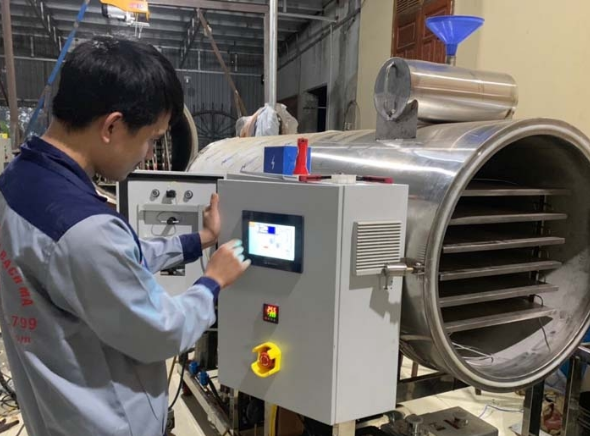



![[Case Study] DeAir Installs DeAir.De Rotor Humidity Control System for Pharmaceutical Plant in Binh Duong [Case Study] DeAir Installs DeAir.De Rotor Humidity Control System for Pharmaceutical Plant in Binh Duong](https://deair.com.vn/thumbs/news/2023_04/ban_giao_may_cho_duoc_bd/[270x153-cr]image1-1024x772.jpg__cv.webp)

![[Review & Guide] Olmas OS-300: The New Humidity Control "Warrior" for Medium to Large Warehouses [Review & Guide] Olmas OS-300: The New Humidity Control "Warrior" for Medium to Large Warehouses](https://deair.com.vn/thumbs/news/huong_dan_su_dung_may_olmas_21/[270x153-cr]vtm06440.png)